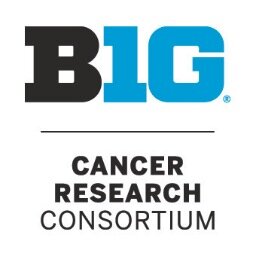Kent McDill, May 2, 2014
Every Big Ten school has doctors and students doing research into the causes and potential cures of cancer. Those efforts are now part of a coordinated system of research known as the Big Ten Cancer Research Consortium.
?The premise of the Big Ten Cancer Research Consortium is to provide a unified network of high-level academic institutions working together for the conduct of novel science-driven clinical trials which incorporate major bench-to-bedside and back translational components arising from the labs and departments of our various centers,?? said Dr. Noah Hahn, former executive officer of the Big Ten CRC.
?There is a big push on team science and collaboration between institutions,?? said Dr. Patrick Loehrer from Indiana University?s Simon Cancer Center. ?Where in the past it has been all about promotion of individual work, today we are acknowledging working together. This is a great opportunity for us as Cancer Centers to work, taking the strength of our institutions and building on that.?
The logistics of the new Consortium required the selection of a central communication center, which is in Indianapolis. Research development efforts for the consortium are led by Jessica Roy.
?Researchers at member institutions are encouraged to contact the Big Ten CRC Administrative Headquarters (AHQ) with an early idea,?? Roy said. ?AHQ provides staff support to the investigator throughout the entire trial from early idea, to data collection, and until study results are published.?
The values of the CRC include the ability to use the specific strengths of individual cancer centers to create a cohesive in-depth study on a particular subject, and the ability to streamline processes in order to make better using of funding.
?AHQ centrally manages the study funds by working with both the funder as well as reimbursing member institutions for patient-related study expenses,?? Roy said.
The consortium also provides a vastly larger study group from which to get results. While each cancer center has its own patients, the population of patients with specific cancer-related illnesses or concerns is now multiplied, and with communication the compilation of study information is made easier.
The fact is that university cancer centers do multi-university trials and studies all the time. What the Big Ten Cancer Research Consortium does is provide an umbrella that covers a dozen university cancer centers, creating a cohesive group that can be accessed time and again without having to start from Square One.
?It is a more efficient process under one administration,?? said Dr. Robert S. DiPaola of the Rutgers Cancer Institute of New Jersey.
The Consortium provides benefits in terms of statistical analysis of a large amount of data from a variety of sources, security of that data under one management team, communications with study sponsors or pharmaceutical companies, and publishing coordination when studies have reached a conclusion.
The Consortium was created in 2011 and has the enthusiastic support of officials from each member institution.
Click here to read BTN LiveBIG's exclusive interview with some of the consortium's leaders.







 See what's coming up live on B1G+ every day of the season at BigTenPlus.com.
See what's coming up live on B1G+ every day of the season at BigTenPlus.com. 